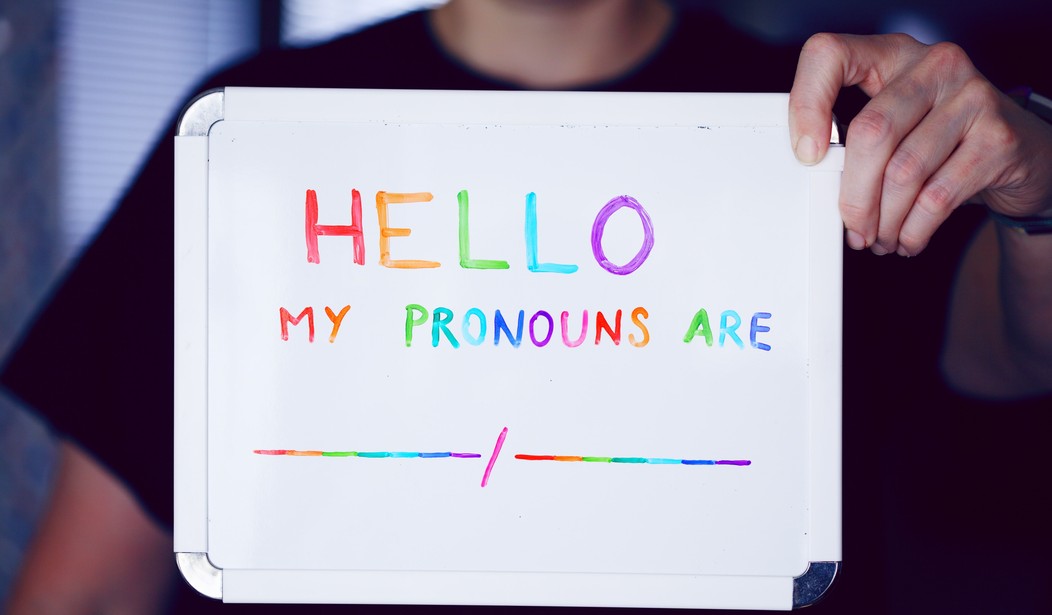Here’s another revelation that will be almost completely ignored by the legacy media. The findings of yet another study show that “gender-affirming care” isn’t exactly what it’s portrayed by those seeking to push gender ideology.
RedState's Ben Kew wrote recently that:
A 2021 study is back in the news again after a journalist highlighted its eye-opening conclusions, which undermine one of the central arguments of the transgender movement.[...]
Its results were neatly summarized by health and science reporter Benjamin Ryan, who has written for a variety of liberal news outlets, including The Washington Post, The New York Times, and The Guardian, among others.
Read:
Devastating Study Blows Up the Entire Transgender Movement
The American Urological Association study analyzed the rate of suicide attempts among Californians who underwent “gender-affirming surgery” as a way to deal with gender dysphoria. It looked at the numbers concerning those who had vaginoplasty, which is male-to-female transition, and those who received phalloplasty, female-to-male surgery.
Researchers found that the rate of suicide attempts was far higher among men having surgery ostensibly to become women than vice versa. The study, which used California state data, observed 859 individuals who underwent vaginoplasty, noting that suicide rates jumped from 1.5 percent to 3.3 percent following the procedure.
The report recommended that those with a history of prior psychiatric episodes should be “counseled appropriately.”
Rates of psychiatric emergencies are high both before and after gender affirming surgery. Although both the phalloplasty and vaginoplasty patients have similar overall rates of psychiatric encounters, suicide attempts are more common in the later. In fact, our observed rate of suicide attempts in the phalloplasty group is actually similar to the general population, while the vaginoplasty group's rate is more than double that of the general population. Patients undergoing GAS with a history of prior psychiatric emergences or feminizing transition are at higher risk and should be counseled appropriately.
It is important to note that this particular study focused on adults. But it comes after other researchers found that subjecting children to “gender-affirming care” could have the same impact. A study conducted by the United Kingdom’s National Health Service found that about one-third of children who were given puberty blockers to ease symptoms of gender dysphoria were harmed by the treatment. It noted that "34 percent of the gender-questioning youth saw their mental health deteriorate while using the drugs," whereas 37 percent experienced no change at all.
These findings, as well as others, have prompted the U.K. to initiate a substantial shift in policy when it comes to treating children with gender dysphoria. The NHS announced recently that it was moving away from “gender-affirming care” and has limited the use of puberty blockers only to clinical trials. This move aligns with actions taken by other European nations such as Sweden, Finland, Norway, and others.
But Europe is shifting away from that approach, leaving the U.S. an outlier in the field.
The U.S. is becoming an outlier among many Western nations in the way its national medical institutions treat children suffering from distress over gender identity.
For years, the American healthcare industry has staunchly defended medical interventions for transgender minors, including puberty blockers, which suppress the physical changes of adolescence as a treatment for those distressed over their gender.
The European medical community, by contrast, is expressing doubts about that approach. Having allowed these treatments for years, five countries—the U.K., Sweden, Finland, Norway, and France — now urge caution in their use for minors, stressing a lack of evidence that the benefits outweigh the risks.
This month, the U.K.’s publicly funded National Health Service limited the use of puberty blockers to clinical trials, putting the drugs beyond the reach of most children.
These results raise a crucial question: If the data does not show that “gender-affirming care” is helpful for children suffering from gender dysphoria, why are people pushing to have these treatments given to youngsters?
What is ironic about this situation is that medical professionals, as well as others, will often scare parents into agreeing to subject their children to these dangerous treatments by telling them their kids will commit suicide if they are not given puberty blockers, hormones, and surgery. Yet, there appears to be growing evidence that the procedures these people champion could be making suicide more likely among minors – especially after they become adults and regret going through these treatments.














